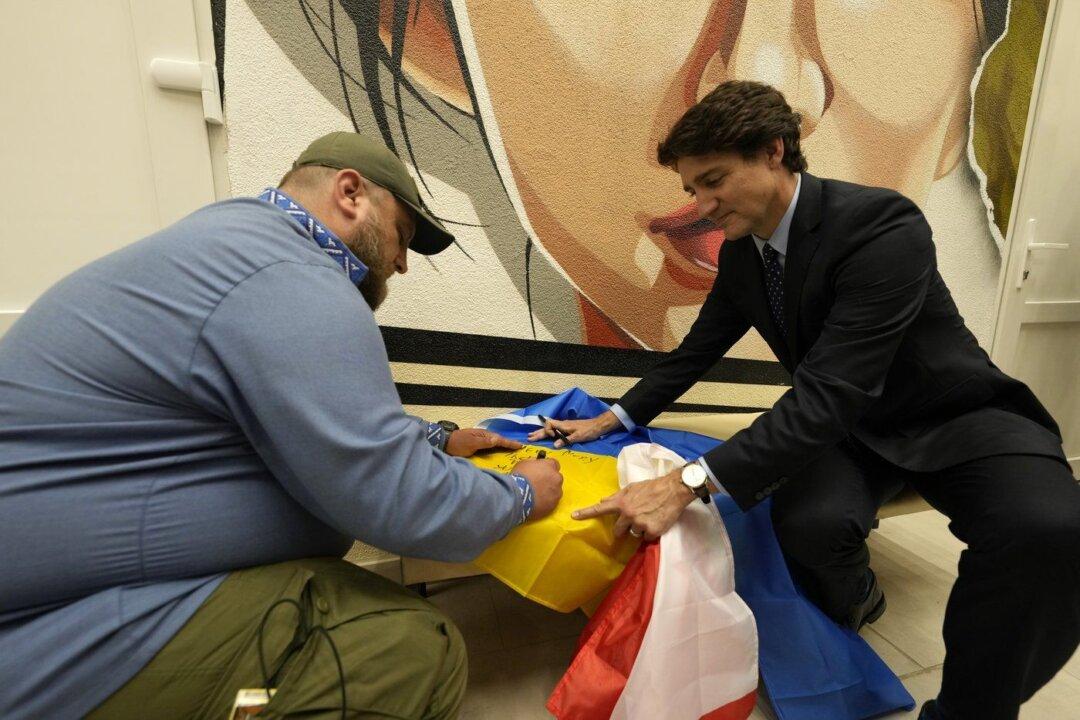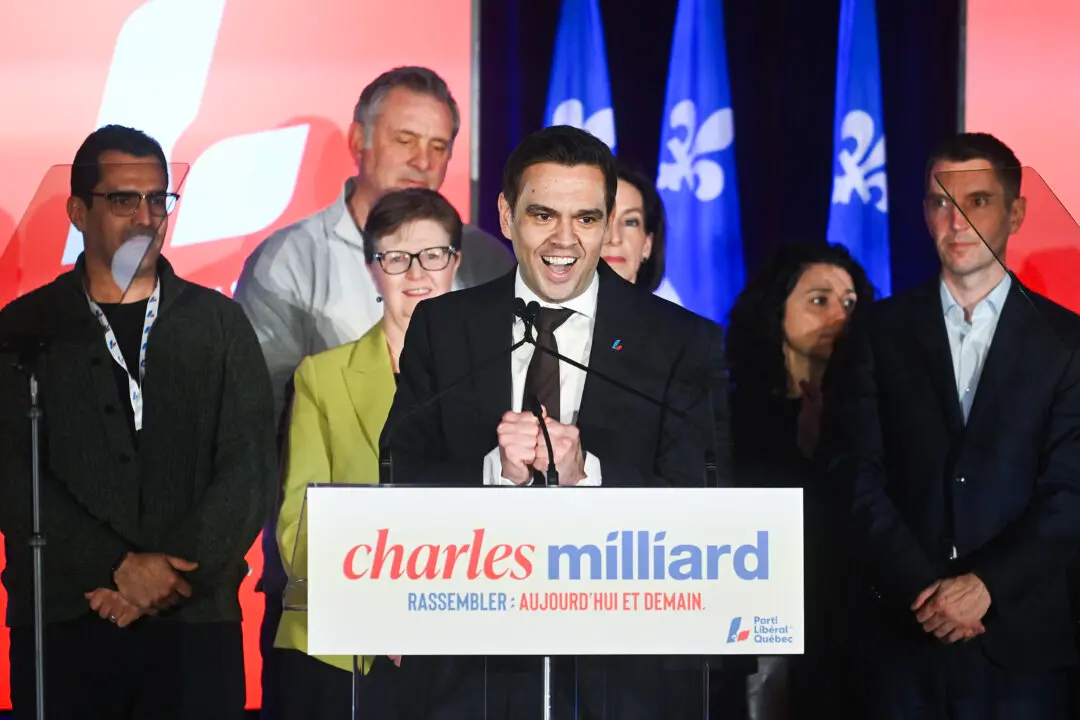Canada will spend $500 million to help Ukraine’s military fight Russia’s invasion, Prime Minister Justin Trudeau said Saturday in Kyiv, where he told the country’s parliament they are in a battle for “the future of us all.”
“You are the tip of the spear that is determining the future of the 21st century,” Trudeau said during a 25-minute speech before a special session of the national legislature, known as the Verkhovna Rada.





